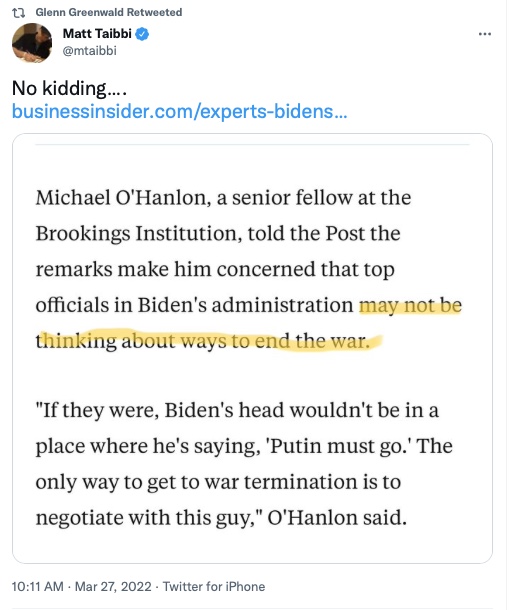Michael Lind: The Far Left is Brain Dead thanks to its Funders and Enablers
Excerpt from Michael Lind's new article at Tablet: "The End of Progressive Intellectual LifeHow the foundation-NGO complex quashed innovative thinking and open debate, first on the American right and now on the center left."
If you are an intelligent and thoughtful young American, you cannot be a progressive public intellectual today, any more than you can be a cavalry officer or a silent movie star. That’s because, in the third decade of the 21st century, intellectual life on the American center left is dead. Debate has been replaced by compulsory assent and ideas have been replaced by slogans that can be recited but not questioned: Black Lives Matter, Green Transition, Trans Women Are Women, 1619, Defund the Police. The space to the left-of-center that was once filled with magazines and organizations devoted to what Diana Trilling called the “life of significant contention” is now filled by the ritualized gobbledygook of foundation-funded, single-issue nonprofits like a pond choked by weeds. Having crowded out dissent and debate, the nonprofit industrial complex—Progressivism Inc.—taints the Democratic Party by association with its bizarre obsessions and contributes to Democratic electoral defeats, like the one that appears to be imminent this fall....
Unlike academics who recite the approved current center-left positions on all issues, genuine intellectuals, even if they happen to be employed by universities, are unpredictable. Often they are unpopular, because they criticize their own allies and appreciate what other schools of thought get right. They do not indulge in contrarianism for its own sake but tend to be controversial, because they put loyalty to what they consider to be truth above party or faction. Needless to say, such intellectual mavericks tend to perform quite poorly when it comes to the boot-licking, rote repetition of political slogans, acronym-juggling, groupthink, and “donor servicing” that constitute the forms of intellectual activity favored by big foundations and NGOs, whether of the right or of the left.


